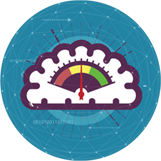In this new publication, we highlight instead how forgetfulness serves many purposes within our everyday experience, giving rise to some of our best characteristics.
Our inability to remember the name of an acquaintance or an important date is both embarrassing and frustrating. For that reason, forgetting is often viewed as a sign of impending cognitive decline or even as a character flaw. These fears have even driven some toward the promise of memory-enhancing pharmaceuticals and digital technologies designed to preserve memories indefinitely. Long the stuff of science fiction, these promises are closer than ever to realization. In this article we instead argue that a life without forgetting risks sacrificing some of our most adaptive and virtuous qualities. We offer a fresh reminder of these virtues, drawing from recent cognitive, neuroscientific, and applied findings. In so doing, we identify three important (if not entirely independent) roles supported by forgetting, namely maintenance of a positive and coherent self-image (“Guardian”), facilitation of efficient cognitive function (“Librarian”), and development of a creative and flexible worldview (“Inventor”). Together, these roles depict an expanded understanding of how forgetting provides memory with many of its cardinal virtues.
Read all about it in our recent target article published in the Journal of Applied Research in Memory and Cognition.
